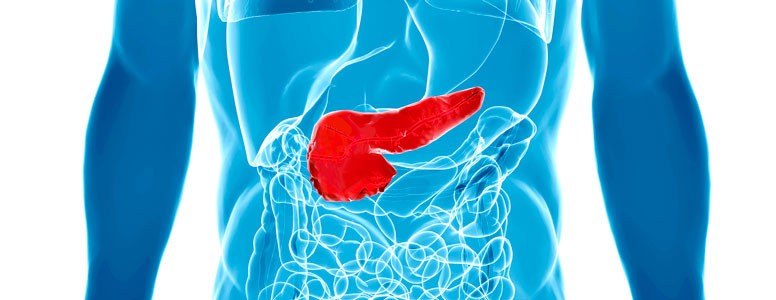Editor’s summary
Mutations in the KRAS gene are one of the most frequent oncogenic events in human cancer. Drugs that inhibit KRAS have recently been approved for the treatment of KRAS-mutant tumors, but their clinical efficacy is limited by primary innate mechanisms and by treatment-associated resistance. To better understand how KRAS-driven tumors grow and resist therapy, J. A. Klomp et al. established a KRAS-regulated gene transcriptome in KRAS-mutant pancreatic cancer. The KRAS mutant transcriptome was found to be regulated largely through activation of the ERK mitogen-activated protein kinase cascade. In a separate study, J. E. Klomp et al. compiled a comprehensive molecular portrait of aberrant ERK signaling in KRAS-mutated pancreatic cancer and identified more than 1500 ERK substrates. These studies advance our understanding of how ERK supports KRAS-dependent cancer growth and may inform next-generation therapies using KRAS and ERK inhibitors. —Priscilla N. Kelly
Structured Abstract
INTRODUCTION
Mutationally activated KRAS causes persistent activation of the RAF-MEK-ERK mitogen-activated protein kinase (MAPK) cascade. Whereas RAF and MEK kinases phosphorylate a highly restricted set of substrates, the closely related ERK1 and ERK2 serine/ threonine kinases directly or indirectly phosphorylate a diversity of functionally distinct proteins. Analyses of the “logical suspects” have validated the roles of specific ERK substrates (e.g., MYC and FRA1), yet a systemwide determination of ERK substrates that facilitate mutant KRAS-driven oncogenesis remains to be completed.
RATIONALE
Nearly four decades after the discovery of KRAS mutations in cancer, clinically effective inhibitors of KRAS have been approved for KRASG12C-mutant non–small-cell lung cancer. However, only <50% of patients respond initially, and most responsive patients become resistant and relapse within 6 months. DNA sequencing of tumors and circulating tumor DNA (ctDNA) from relapsed patients identified mutational activation (e.g., of RAF or MEK) or inactivation (e.g., NF1) of components within the RAS signaling network that result in reactivation of ERK MAPK signaling. Although numerous mass spectrometry analyses have collectively identified >1300 ERK1/2 direct or indirect substrates, the limited overlap among different studies suggests that the full spectrum of ERK-dependent phosphorylation events has not been elucidated. In this study, we applied mass spectrometry using improved methodology and pooled data from a panel of heterogeneous cancer cell lines to generate a system-wide determination of the ERK-dependent phosphoprotein signaling network in the most KRAS-addicted cancer, pancreatic ductal adenocarcinoma (PDAC).
RESULTS
Previous phosphoproteomic studies to catalog ERK substrates used a diversity of cell types, involved different ERK activation stimuli, and applied varied experimental designs. We focused on pathologic ERK signaling driven by endogenous oncogenic KRAS in PDAC. We first developed constitutively activated variants of ERK1 and ERK2 and showed that they play redundant roles. Each alone is sufficient to support mutant KRAS–dependent PDAC growth, and they stimulate nearly identical transcriptional signaling outputs. Next, evaluating phosphorylation changes caused by pharmacologic inhibition of ERK, we captured immediate direct activities (1 hour) and delayed secondary activities (24 hours) induced by loss of chronic ERK activation. We identified 2123 ERK-dependent phosphoproteins, 67% of which were not previously associated with ERK, thus greatly expanding the depth and breadth of the ERK-regulated phosphoproteome. We then applied our recently annotated serine/threonine kinome motif database to establish the protein kinase signaling network that drives the ERK-dependent phosphoproteome. At 1 hour, loss of ERK- and RSK (a direct ERK substrate)–dependent phosphorylation predominated. By contrast, at 24 hours, loss of cyclin-dependent kinase (CDK1-6)–dependent phosphorylation predominated, accompanied by activation of other kinases, indicating dynamic alterations over time. Integrating pathway analyses and information from the Cancer Dependency Map portal (DepMap), we showed that 17% of the ERK phosphoproteome is essential for PDAC growth, and it is enriched in nuclear-localized proteins and in proteins involved in cell cycle regulation and RHO guanosine triphosphatase (GTPase) signaling. The PDAC-derived KRAS-dependent phosphoproteome is driven nearly exclusively through ERK and is applicable to other tissues and species.
CONCLUSION
This study greatly expanded the depth and breadth of ERK-regulated direct and indirect phosphoproteins. Given that reactivation of ERK is a major basis for acquired resistance to KRAS inhibitor therapy, this comprehensive molecular portrait of mutant KRAS–driven pathologic ERK signaling will be important to elucidate the mechanisms of patient response and resistance to KRAS inhibitors.
Abstract
To delineate the mechanisms by which the ERK1 and ERK2 mitogen-activated protein kinases support mutant KRAS–driven cancer growth, we determined the ERK-dependent phosphoproteome in KRAS-mutant pancreatic cancer. We determined that ERK1 and ERK2 share near-identical signaling and transforming outputs and that the KRAS-regulated phosphoproteome is driven nearly completely by ERK. We identified 4666 ERK-dependent phosphosites on 2123 proteins, of which 79 and 66%, respectively, were not previously associated with ERK, substantially expanding the depth and breadth of ERK-dependent phosphorylation events and revealing a considerably more complex function for ERK in cancer. We established that ERK controls a highly dynamic and complex phosphoproteome that converges on cyclin-dependent kinase regulation and RAS homolog guanosine triphosphatase function (RHO GTPase). Our findings establish the most comprehensive molecular portrait and mechanisms by which ERK drives KRAS-dependent pancreatic cancer growth….







